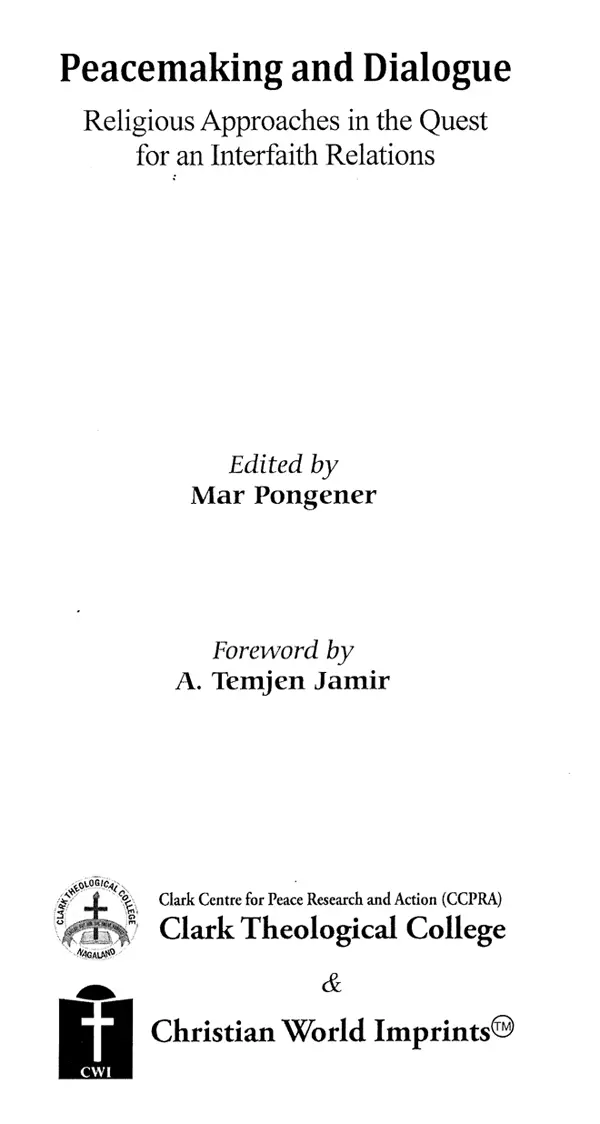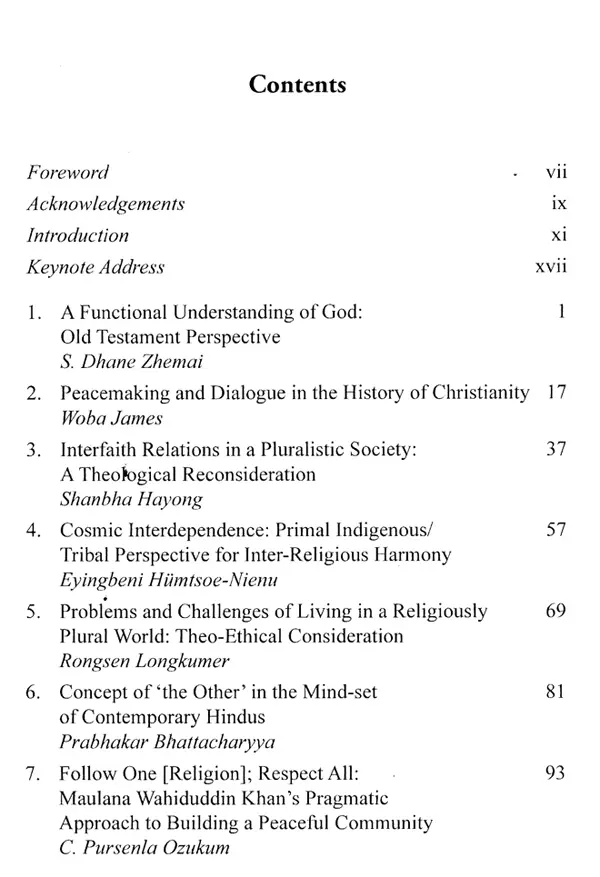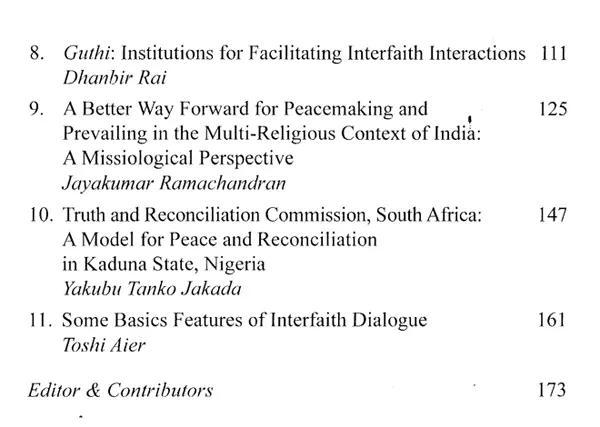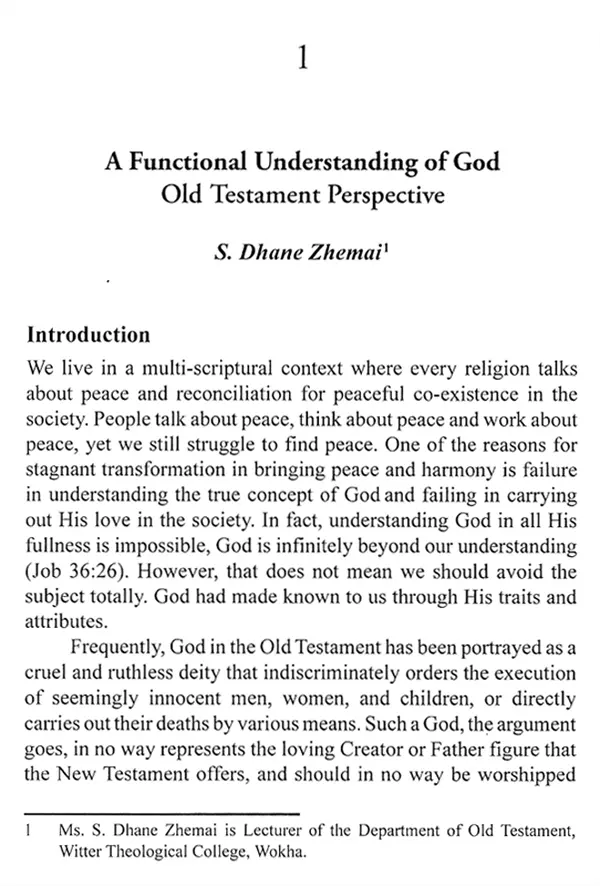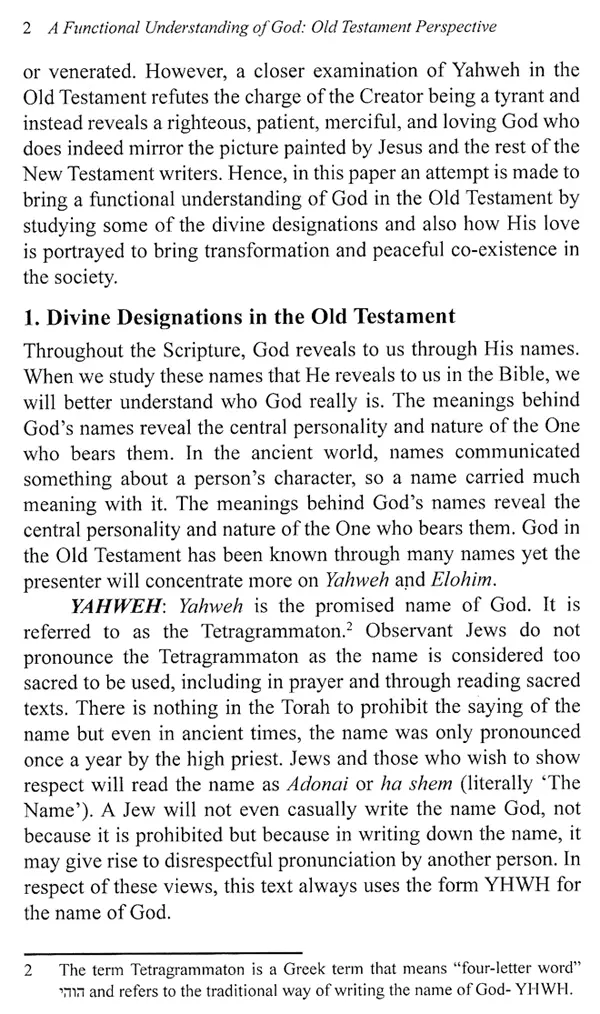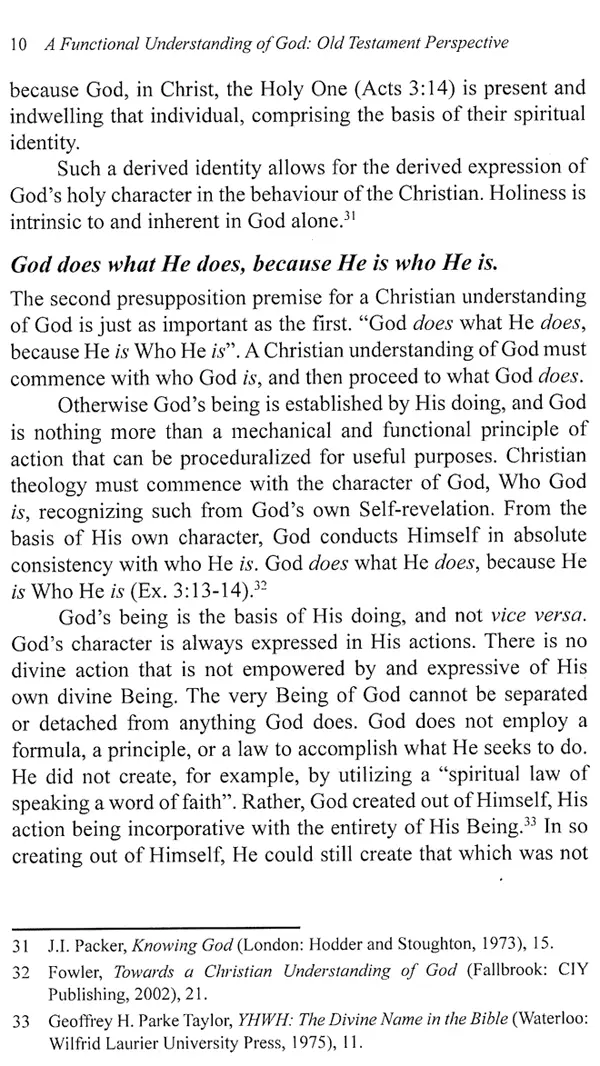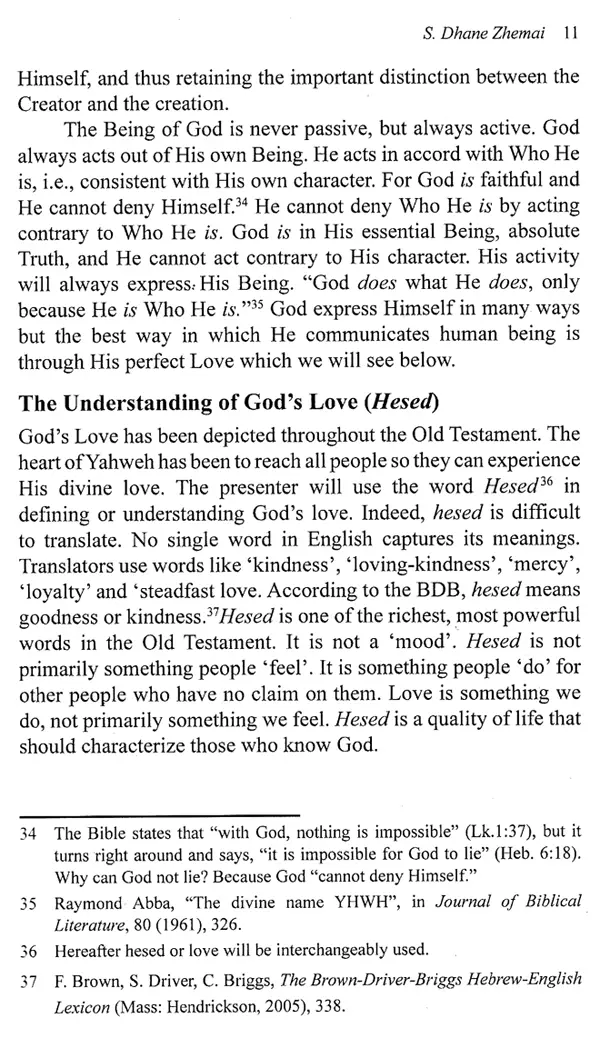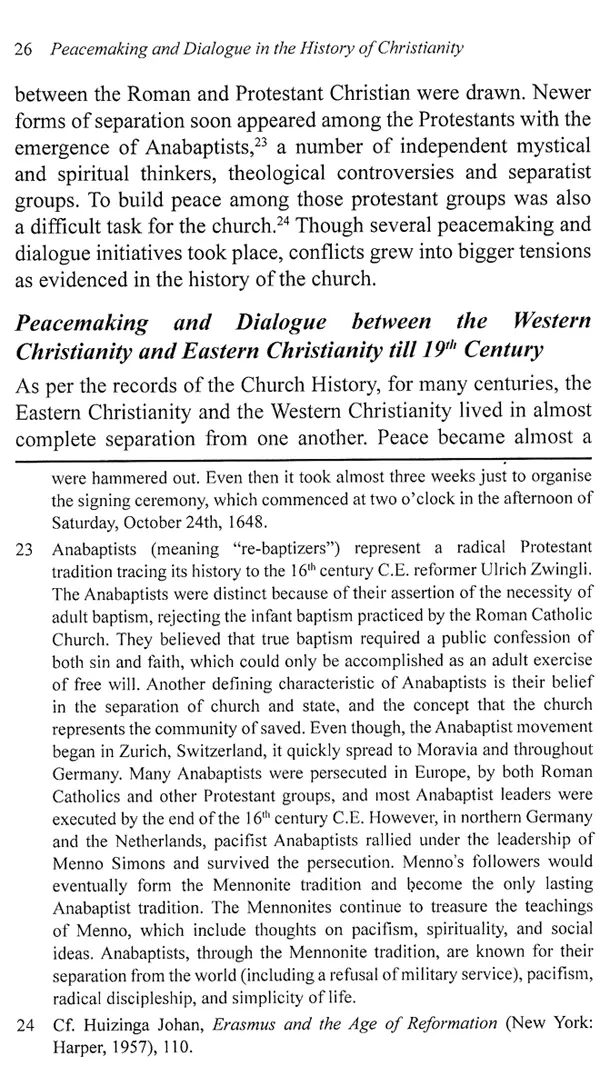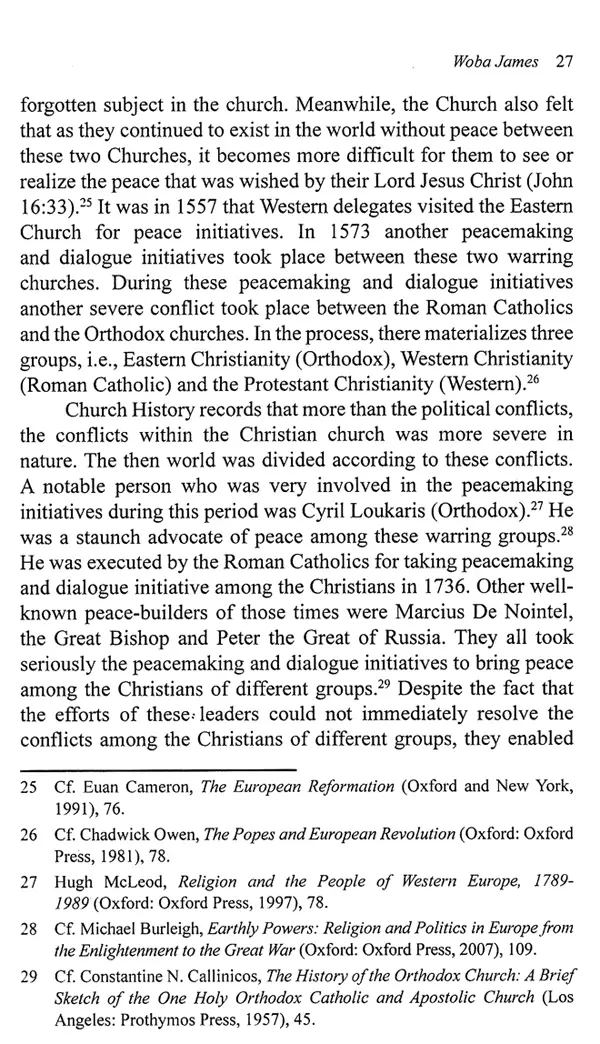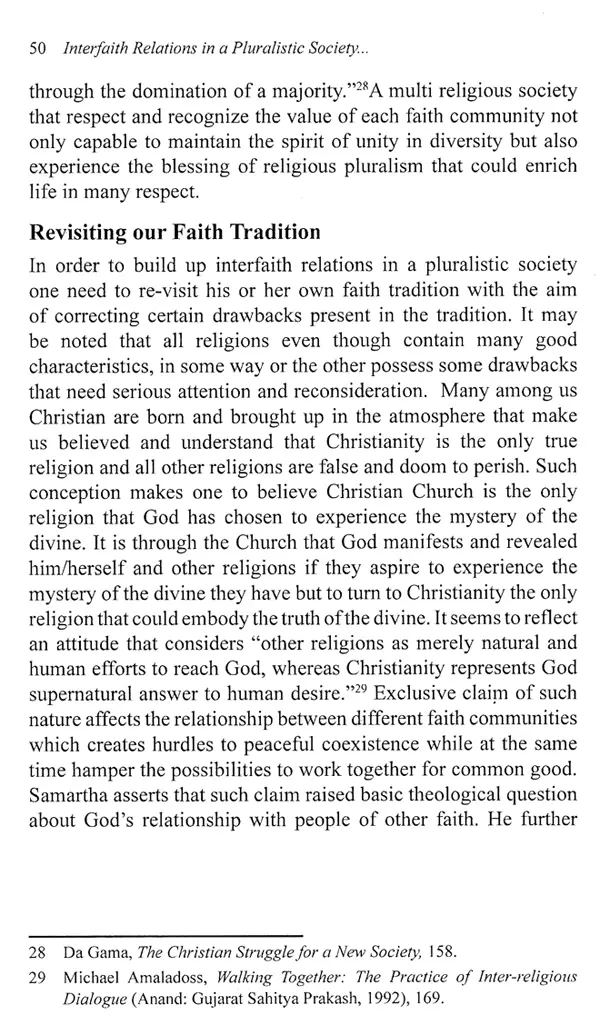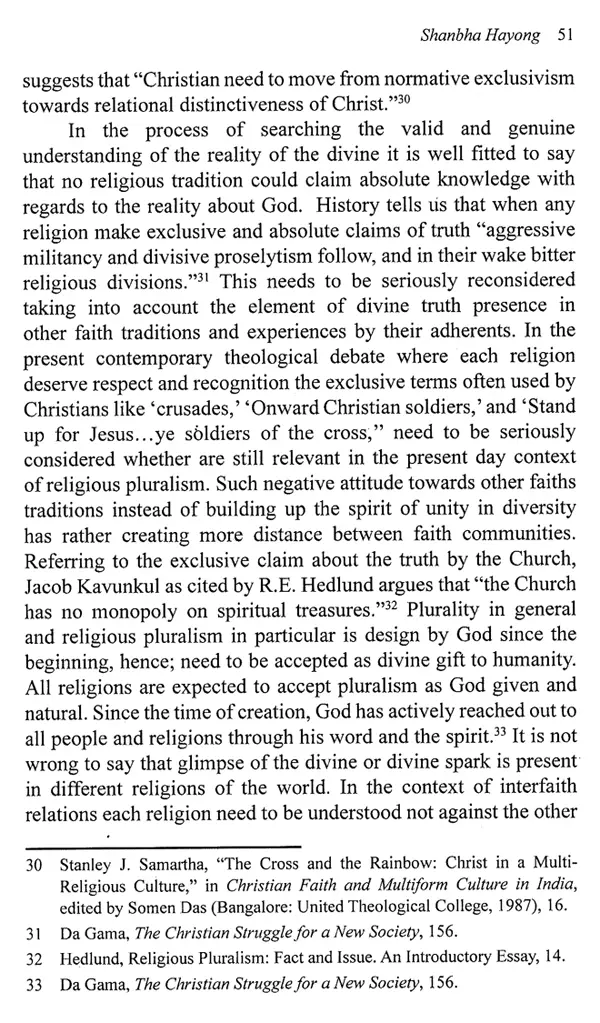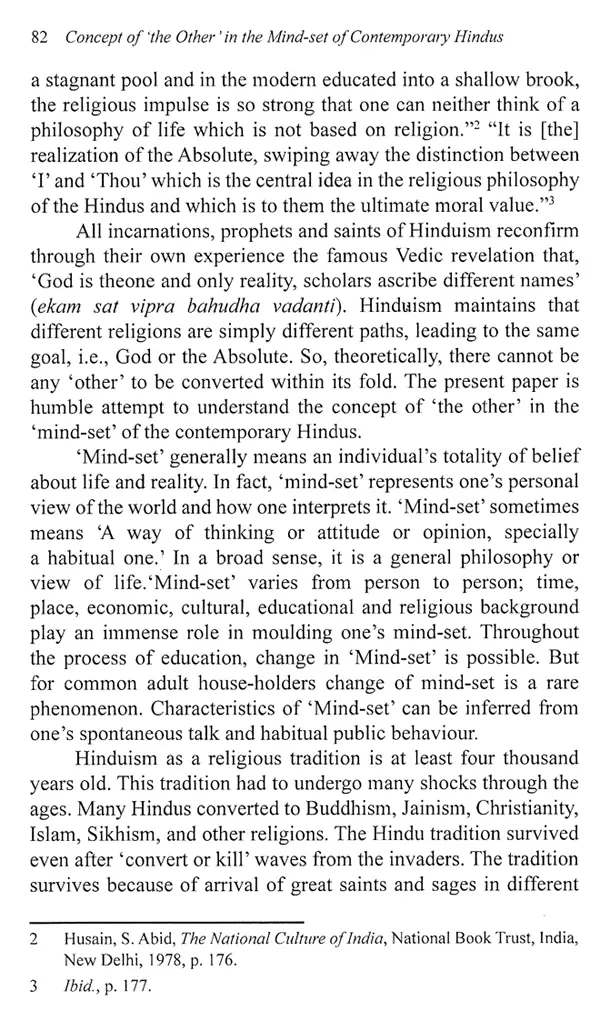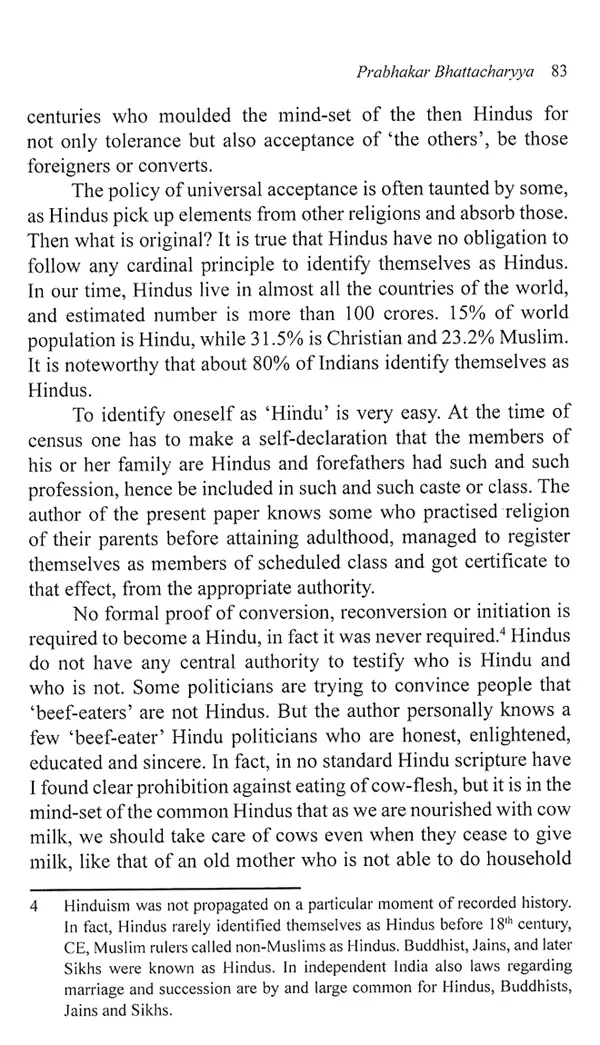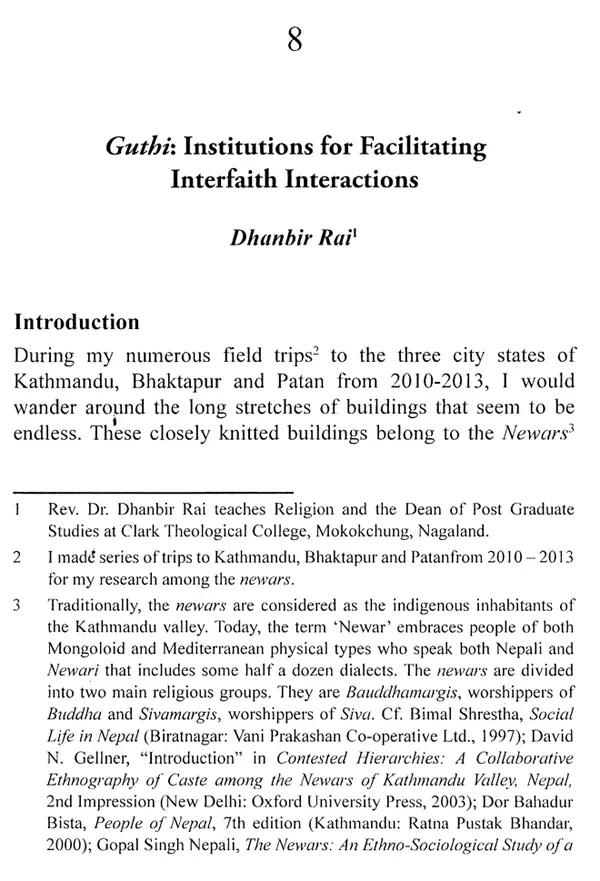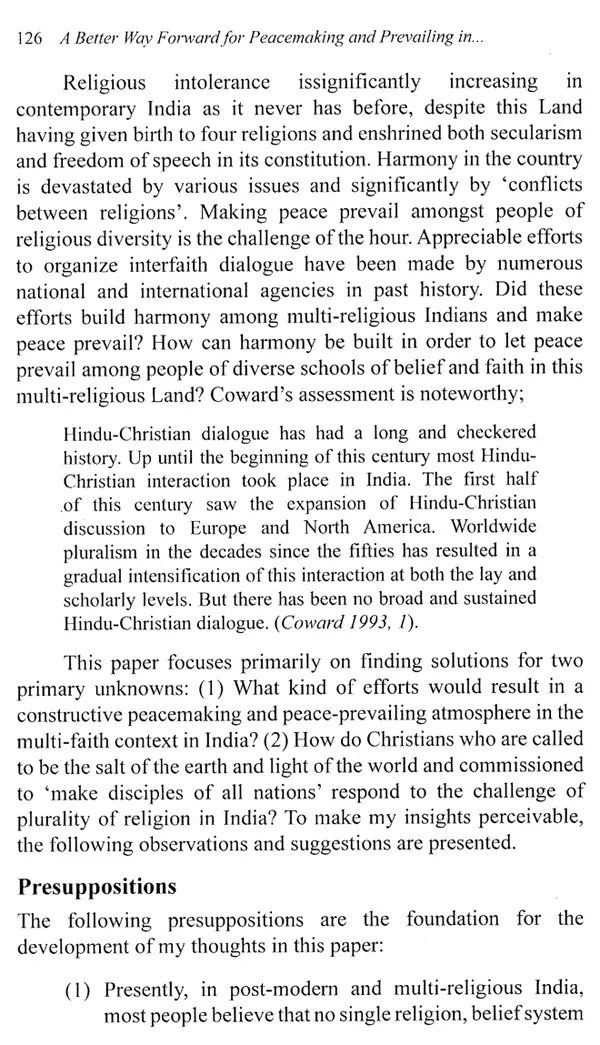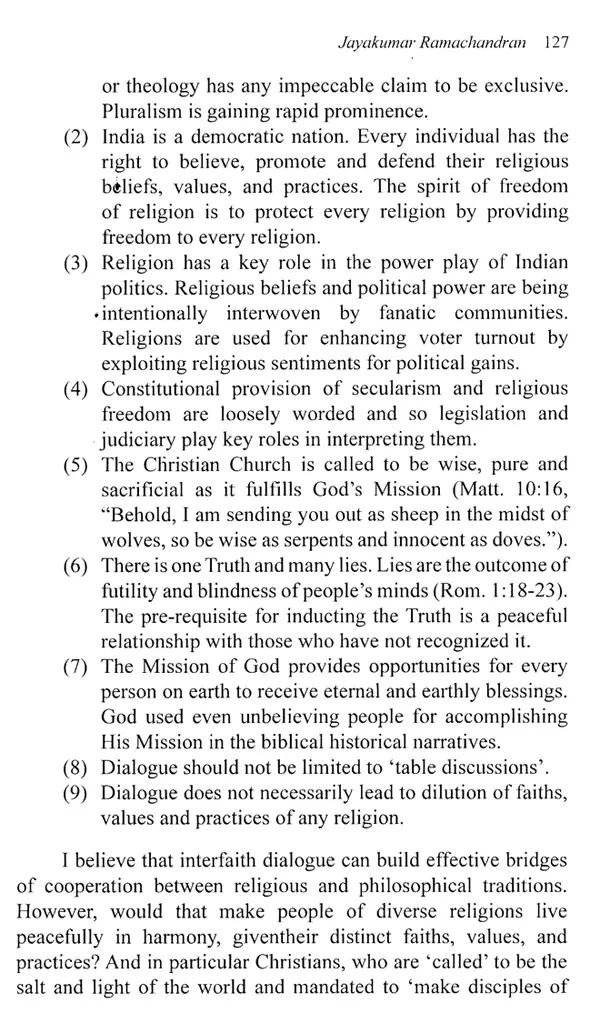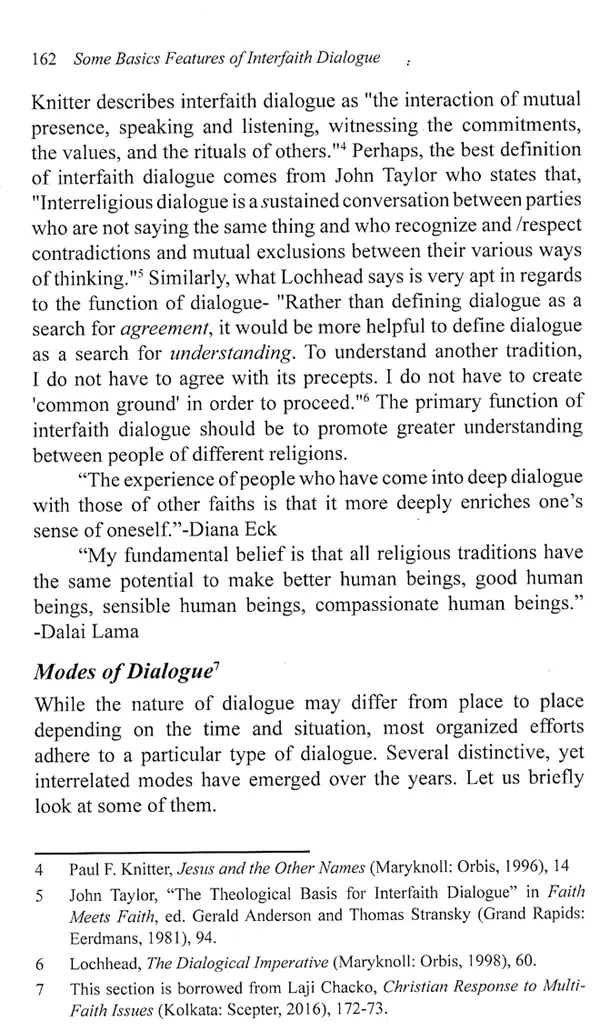
Peacemaking and Dialogue - Religious Approaches in the Quest for an Interfaith Relations
Book Specification
| Item Code: | UBA287 |
| Author: | Mar Pongener And A. Temjen Jamir |
| Publisher: | Christian World Imprints, Delhi |
| Language: | English |
| Edition: | 2018 |
| ISBN: | 9789351483113 |
| Pages: | 174 |
| Cover: | HARDCOVER |
| Other Details | 9.00 X 6.00 inch |
| Weight | 440 gm |
Book Description
The importance of maintaining the cosmic chain of interdependence need to be reaffirmed by people of all religions, believing that when any part of the chain snaps the potentiality of destruction is also of cosmic proportion. The knowledge of cosmic interdependence, provided by primal tribal worldview, is a valuable perspective to keep our relationship with God and all else not only meaningful but also productive.
Interfaith dialogue should not intend to take away or brush aside respective and distinct faiths and practices of other religions nor should it aim at coming to a common and syncretized belief. It rather should seek to accomplish a mutual recognition and understanding of 'other' faiths and beliefs to build good relationships between religious schools, as people are expected to live in harmony in any given community of a region.
In a world that is increasingly becoming religiously intolerant, interfaith dialogue has become essential in order to help people discover, celebrate and promote the reality of pluralism. It is important that people respect and have appreciation for other's faith traditions. In dialogue we hope to build relationships, identify commonly-held beliefs and enhance the participants' own faith experience.
Engaging in dialogue towards peacemaking has been seen as life- changing and life-affirming efforts in the history of the human community. It requires openness, acceptance, understanding and respect for the other person, so that it may provide a fruitful result. In fact, in dialogue two people or two groups of people can come together in a face to face context to pour out and express their emotions and feelings spontaneously that aims at achieving a mutual understanding and long lasting solution to the existing problem. Today, as we live in a religiously pluralistic context in which different faith communities closely live together with one another, prejudices, intolerance, hatred and conflict can be occurred due to ideological and doctrinal differences, faith and truth claims among the different religious groups. It disturbs the peaceful atmosphere and strains relationships with one another. In this connection, dialogue has been found as one of the effective methods of promoting tolerance, reconciliation, interfaith-relation and peace among the people in the society. The seminar organised by the Clark Centre for Peace Research and Action (CCPRA) on November 18-19, 2016, aptly focused on the theme: Peacemaking and Dialogue: Religious Approaches in the Quest for an Interfaith Relation, from different perspectives such as biblical, theological, religious, historical, ethical, tribal and missiological perspectives. This effort will enlighten us with a wide range of knowledge and better understanding on how dialogue can be effectively used to deal with different human problems, in order to explore and promote peace and interfaith relation among different faith communities in the society.
Talks about peace and the need for peace has always been a widespread topic. Peace is a stage of nurturing harmony, order and concord. Why peace? Individually, to grow to our full measure and socially, to bring up our families, to develop our nations and to work towards the total well-being of all. Peace is a gift from God, a gift to be yearned for, enjoyed, shared and practiced. Peacemaking grows from the humble suspicion that our own perspective is limited and that there are truths we can discover if we listen. It requires flexibility of our thoughts and to have the willingness to see different views to an issue more openly by engaging in dialogue with different people.
In this book, the CCPRA has published the works of scholars and writers who in their understanding has written chapters on Peacemaking and Dialogue, focused more towards the aspect of interfaith relations.
Everyone individually, needs to create an environment that prides itself on the commitment to peace, unity and interfaith dialogue. We sincerely have to believe that it can be fixed. We have to also submit to the fact that we have to cultivate a society of acceptance with our neighbours regardless of religion. As a society, we need to begin to initiate conversations and relations with one another to strive and grow as faith communities.
